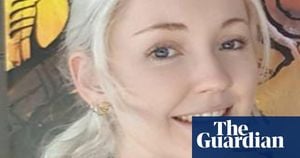Roberta Flack, the legendary Grammy-winning singer known for her timeless hits like "The First Time I Ever Saw Your Face" and "Killing Me Softly With His Song," has passed away at the age of 88. She died peacefully on February 24, 2025, surrounded by her family, as confirmed by her publicist, Elaine Schock.
Flack's career spanned over five decades and contributed significantly to the world of pop and R&B music. Born Roberta Cleopatra Flack on February 10, 1937, in Black Mountain, North Carolina, she was raised in Arlington, Virginia. With her musical roots stemming from her family, Flack showed exceptional talent as she began playing the piano at a young age. She won a full scholarship to Howard University by the time she was just 15 years old.
Flack’s rise to fame began when she was discovered by jazz musician Les McCann, leading to her signing with Atlantic Records. Her big break came when Clint Eastwood chosen her song, "The First Time I Ever Saw Your Face," for the soundtrack of his 1971 film, "Play Misty for Me." The song topped the Billboard pop chart and won her the Grammy for Record of the Year, making her the first artist to win this honor consecutively with her following hit, "Killing Me Softly With His Song." With this track, Flack's unique vocal style not only won her accolades but also solidified her influence on the 'quiet storm' genre—a combination of R&B and soul marked by smooth melodies and heavy emotional depth.
Her music was characterized by what she called "scientific soul,” blending her classical training with contemporary rhythms. “If everybody said I sounded like one person, I’d worry,” she once remarked. “But when they say I sound like them all, I know I’ve got my own style,” she said, reflecting her versatility and unique voice.
Despite her monumental success, Flack faced personal challenges, particularly her health struggles later in life. She was diagnosed with ALS, commonly known as Lou Gehrig's disease, which severely affected her ability to sing and speak. "It made it impossible to sing and not easy to speak," said her management team. Nonetheless, Flack remained determined to pursue her musical passions and inspire others, saying at the time, "It would take a lot more than ALS to silence this icon.”
Flack’s partnership with fellow musician Donny Hathaway was one of the notable highlights of her career. The two created several hits together, including "Where Is the Love" and "The Closer I Get to You." Hathaway's tragic death after struggling with mental health imprinted deeply on Flack, as she reflected on their musical synergy, saying, “We were deeply connected creatively. He could play anything, sing anything.” Their partnership remains celebrated as one of the most fruitful collaborations in the music industry.
Throughout her lifetime, Flack amassed several accolades, including five Grammy Awards and recognition for her contributions to the civil rights movement. She shared friendships with prominent figures like Jesse Jackson and Angela Davis, actively participating in the social change efforts of the mid-20th century. Her background as both an artist and educator shone brightly through her involvement with the Roberta Flack School of Music, where she taught and inspired young musicians.
Flack's influence transcended generations, as contemporary artists such as Jennifer Hudson and Questlove paid homage to her legacy. After her passing, Hudson remarked, "Roberta was one of the great soul singers of all time," underlining how Flack's music continues to resonate.
Her work was not only limited to classic records, as she also enjoyed renewed success with the Fugees’ reinterpretation of "Killing Me Softly"—a chart-topping hit once more, introducing her immense talent to new audiences.
The remarkable life of Roberta Flack, who broke barriers and records and educated aspiring musicians, will be remembered as one filled with artistry and empowerment. From her celebrated performances to her dedication to teaching, Flack leaves behind a legacy rooted not only in music but also as a source of inspiration for future generations.



